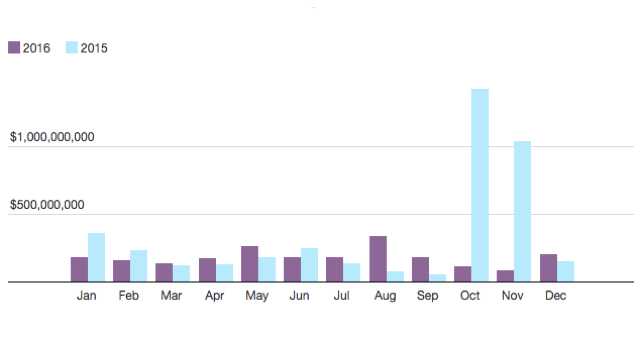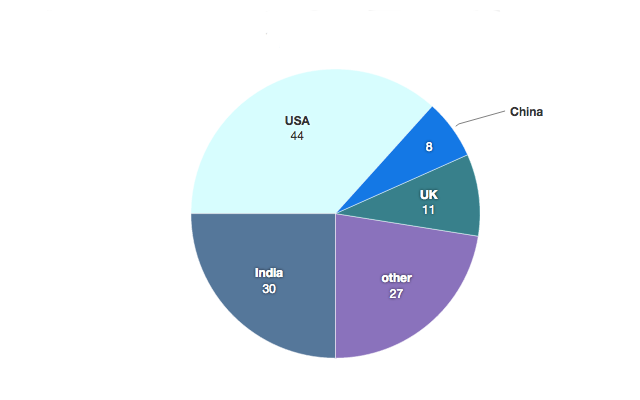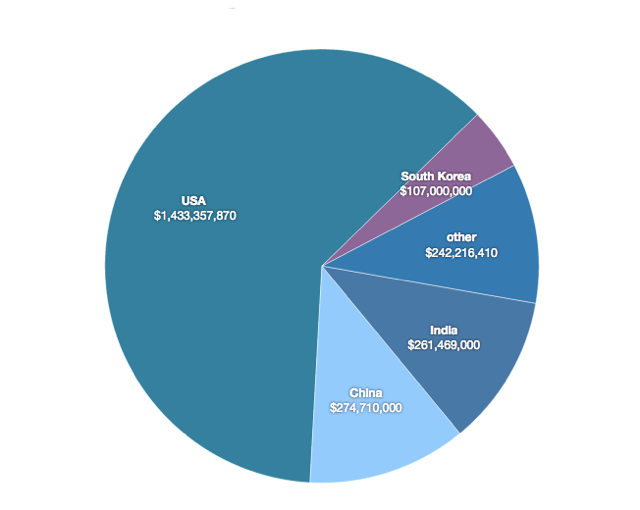2015 was a record-setting year for ed-tech investment. 2016, not so much. Indeed, the amount of money invested in ed-tech this year fell by 47%.
Total dollar amount: $2,177,833,280
The number of investments fell by 11%.
Total deals: 201
(For comparison: in 2015, there were 225 funding deals totaling $4,147,226,000.)

More than half of the investments this year were to startups founded outside the United States. Number of deals per country:

Dollars invested per country:

The companies that raised the most venture capital this year:
- Age of Learning (educational apps) – $150,000,000
- BYJU’s (test prep) – $140,000,000
- Podotree (educational apps) – $107,000,000
- VIPKID (English language learning) – $100,000,000
- Affirm (student loans) – $100,000,000
- Incred (student loans) – $75,000,000
- Zuoyebang (homework help) – $60,000,000
- Udemy (skills training) – $60,000,000
- Student.com (student housing) – $60,000,000
- Kaltura (video platform) – $50,000,000
- Galvanize (coding bootcamp) – $45,000,000
- Matific (math games) – $45,000,000
- Panopto (lecture capture) – $42,800,000
- Edlio (content management system) – $40,000,000
- Everfi (skills training) – $40,000,000
- Grovo (corporate training) – $40,000,000
- Jerry Education (tutoring) – $40,000,000
Those building educational apps, those offering online tutoring or test prep, those promising “skills” training, and those offering student loans were the most well funded and most frequently funded types of ed-tech companies.
I’ve listed the most active investors of the year in a separate article. (These are mostly unchanged from 2015.) Venture capitalists sit at one end of the life cycle of ed-tech funding. At the other end: companies close; they merge; they IPO (very very very rarely – there was just one education IPO this year: China Online Education Group); they’re acquired.
The number of acquisitions was up this year by 16% – there were 90 in 2015 and 104 in 2016. The most active acquirer this year was PowerSchool, which itself was acquired by the private equity firm Vista Equity Partners last June. PowerSchool acquired six companies in 2016; Frontline Education acquired five. The biggest ed-tech acquisition this year was Microsoft’s purchase of LinkedIn for $26.2 billion. (Yes. I’m counting this as ed-tech. Come at me.) Popular acquisition targets: coding bootcamps.
As always, the data for this analysis is freely and openly available via the GitHub repository that powers the funding.hackeducation.com site.
Graph credits: Datawrapper